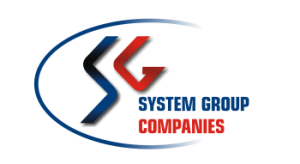The Voluntary Carbon Market (VCM) is a market where companies can purchase carbon offsets from projects that have generated emissions reductions beyond what is required by regulation. These offsets can then be used to offset the emissions of the purchasing company. Carbon offsetting has become an increasingly popular method for companies to reduce their carbon footprint and achieve their sustainability goals. However, not all carbon offsets are equal, and it is important to understand the criteria that determine the quality of an offset. This article explains the world of carbon offsets and how to determine the quality of a carbon offset.
One key factor in determining the quality of a carbon offset is the criteria of the various Voluntary Carbon Standards. These standards provide a framework for verifying the emissions reductions of offset projects and ensuring that they meet certain environmental and social criteria. Some of the most widely recognized voluntary carbon standards include the Verified Carbon Standard (VCS), the Gold Standard, and the American Carbon Registry (ACR).
Voluntary Carbon Standards
Each standard has its own set of criteria for assessing the quality of an offset project, which typically includes:
1. Additionality: The offset project must not have happened without the revenue generated from the sale of offsets.
Additionality assesses whether the carbon offset project would not have happened without the financial support from carbon offset buyers. In other words, the project should not be a business-as-usual scenario, and the offsetting should result in additional emissions reductions that would not have occurred otherwise.
2. Permanence: The carbon sequestered or avoided by the project must be permanent.
Permanence assesses the long-term stability of the carbon sequestration or emission reduction achieved by the project. For example, a reforestation project may be at risk of wildfires or deforestation, which would release the stored carbon back into the atmosphere. Therefore, it’s essential to ensure that the carbon sequestration or emission reduction achieved by the project is permanent or long-lasting.
3. Verifiability: The carbon sequestered or avoided must be measurable and independently verified.
Verifiability assesses the ability to accurately measure, monitor, and report the amount of carbon sequestered or emissions reduced by the project. Verification helps to ensure that the project’s claims about the carbon reduction are accurate and credible.
4. Leakage: The project must not cause negative impacts elsewhere.
Leakage assesses whether the emissions reduced in one area or sector are offset by increased emissions in another area or sector, leading to no overall reduction in emissions. Leakage can occur due to various factors, such as changes in behavior, market dynamics, or government policies.
5. Double counting: The offset must not be counted twice, both by the buyer and by the seller.
Double counting assesses whether the same carbon offset has been claimed or counted multiple times by different parties. Double counting can occur when the carbon offset is sold or used for compliance in multiple markets, making it essential to ensure that the same offset is not counted twice.
Social Impacts
Another important factor to consider is the perspective of both companies and communities towards offsets. For companies, offsets can provide a way to reduce their carbon footprint and demonstrate their commitment to sustainability. Communities, on the other hand, may have concerns about the impact of offset projects on their local environment and economy. It’s important for offset projects to engage with local communities and ensure that their rights and interests are respected.
In conclusion, the quality of a carbon offset depends on a range of factors, including the criteria of the voluntary carbon standards, the additionality of the emissions reductions, and the perspectives of both companies and communities. While there are debates around the effectiveness and ethics of carbon offsetting, it can be a valuable tool for reducing emissions and funding emission reduction projects that might not otherwise be financially viable. By carefully evaluating these factors, companies can ensure that they are investing in high-quality offsets that make a meaningful contribution to addressing the challenge of climate change.




